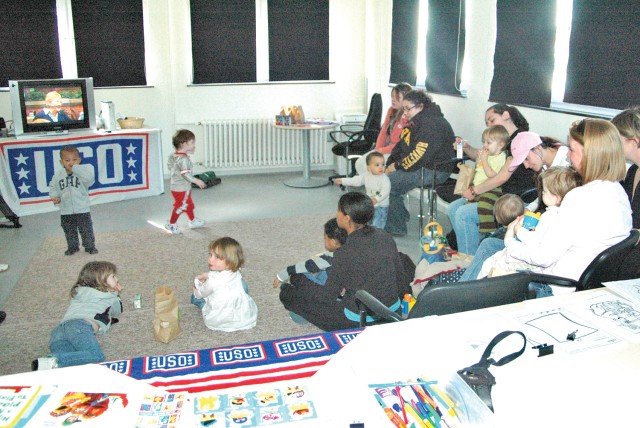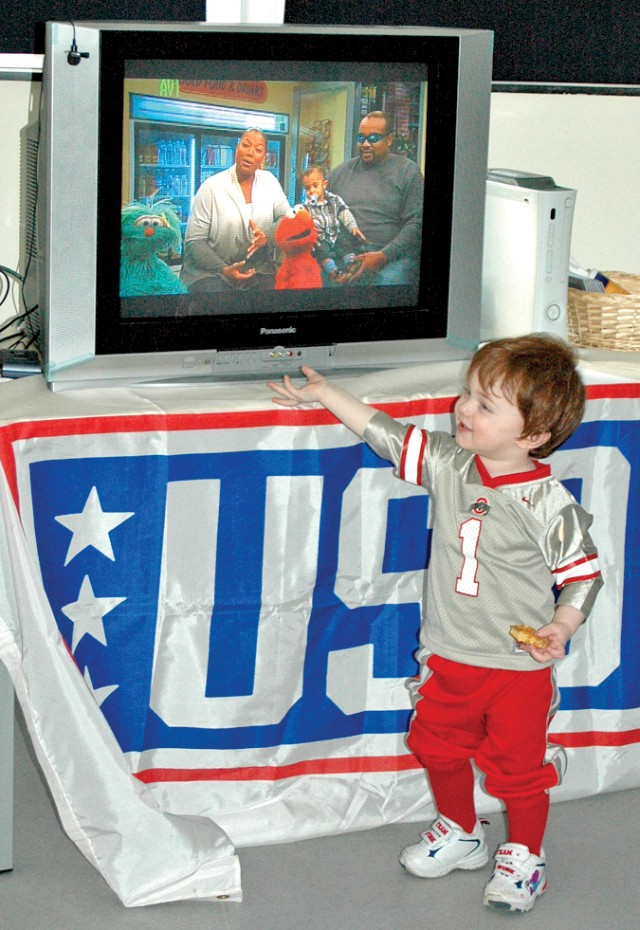WIESBADEN, Germany - The deployment of a Soldier poses a number of challenges for a family - the biggest fear being the Soldier may not return.
Another concern is the individual could be permanently injured. How will that impact the family'
Sesame Workshop has produced a Talk, Listen, Connect program addressing the issue of redeployment. In partnership with the USO, the Sesame Workshop organization distributed DVDs of the show to USOs worldwide as part of a military community pre-screening campaign.
Wiesbaden families recently got a sneak preview with pre-screenings March 29 at the Wiesbaden Library and March 31 at the USO Cottage in Hainerberg Housing. Titled "Coming Home: Military Families Cope with Change," the half-hour prime time special stars singer/actress Queen Latifah, musician John Mayer and Sesame Street regular Elmo.
The special tells the story of service members who return home with injuries, visible and invisible, and explores the heroic struggles their families face in discovering ways of finding a "new normal." The show salutes the courage and strength of these military families.
"I thought it was well-done," said Kathrin Loeffert following the pre-screening at the USO Cottage. "I thought it was good that it talked about Post Traumatic Stress Disorder."
Loeffert said she and her husband Ethan, who is with the 1st Military Intelligence Battalion, have discussed how they might cope as a family if he were to return from a deployment permanently injured. "Our daughter was 16 months old when he came back (from a previous deployment)," said Loeffert, adding that because their child was so young they talked about the basics.
Loeffert believes it would crucial for her to continue showing affection to Ethan even if an injury left him disfigured, saying that such model behavior would set the example for the child to react to the injured parent in the same way.
Their daughter Vivian is now 4, and Loeffert said she expected her daughter would be asking questions after seeing the Sesame Street program. "She has seen the medical HMMWVs (at the airfield) and asked what they were for," said Loeffert. "She knows daddy has been to Iraq. She asked if he could be hurt. He told her yes, but that the Army doctors would take care of him."
Creators of the show said they want to encourage discussion of sensitive topics. Sesame Workshop officials said with help from Elmo and Rosita, "Coming Home" gives a voice to young children as they play a central role in their families' adjustment process. The special encourages them to ask questions and talk about how they feel. The show features real families dealing with combat-related injuries including the loss of a limb, traumatic brain injury and PTSD.
The special was broadcast in the United States on April 1. AFN will air the special in early April (check local listings) in association with April as Month of the Military Child.
For more information about Sesame Workshop and "Coming Home" visit www.pbs.org/parents.




Social Sharing